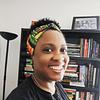Take a photo of a barcode or cover
challenging
informative
reflective
medium-paced
challenging
informative
slow-paced
This is purely academic writing from Morrison and I don’t mean that in a bad way, but it is definitely not her fictional style. Frankly, the depth of her arguments is stultifying, at least in part. The last third of the book, the 3rd lecture I suppose, is the one I enjoyed (understood?) the most. Possibly because I had immersed and invested myself by that point. However, all too soon, it was complete. I suspect the lectures themselves were more engaging than simply reading them, but this is a textbook in many ways and should be read as such.
informative
inspiring
reflective
medium-paced
A strange book, by my reading of it. Semi-scholarly, revised lectures that hint at the presence of what Morrison calls the "Africanist" in American literature, particularly 19th- and early 20th-century. It's odd—I completely buy her thesis, which seems self-evident, even—but she offers not much evidence for it, and her prose is oddly laborious. There are two Morrisons, and fortunately this is the work of the first—the book editor for whom Song of Solomon and Sula were her entries in American fiction on a par with Zora Neale Hurston, Stein and Faulkner. Later Morrison (post-Beloved) does not bear much inquiry. I suspect this is most valuable for its popularization of ideas better articulated elsewhere. Mostly I'd now like to read the Cather and Poe novels to which she glancingly refers.
challenging
informative
reflective
challenging
informative
slow-paced
Slow as Morrison built her rubric but once she got to Poe and, especially, to Hemingway I really enjoyed her dissection of the Africanist presence in their fiction. It's especially persuasive when she's examining how notions of freedom and liberty depended on the depiction of an enslaved Black population that the authors nonetheless didn't give fulsome voice to.
challenging
informative
reflective
challenging
informative
slow-paced
dark
informative
inspiring
reflective
medium-paced




